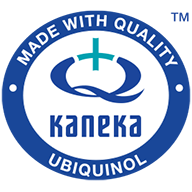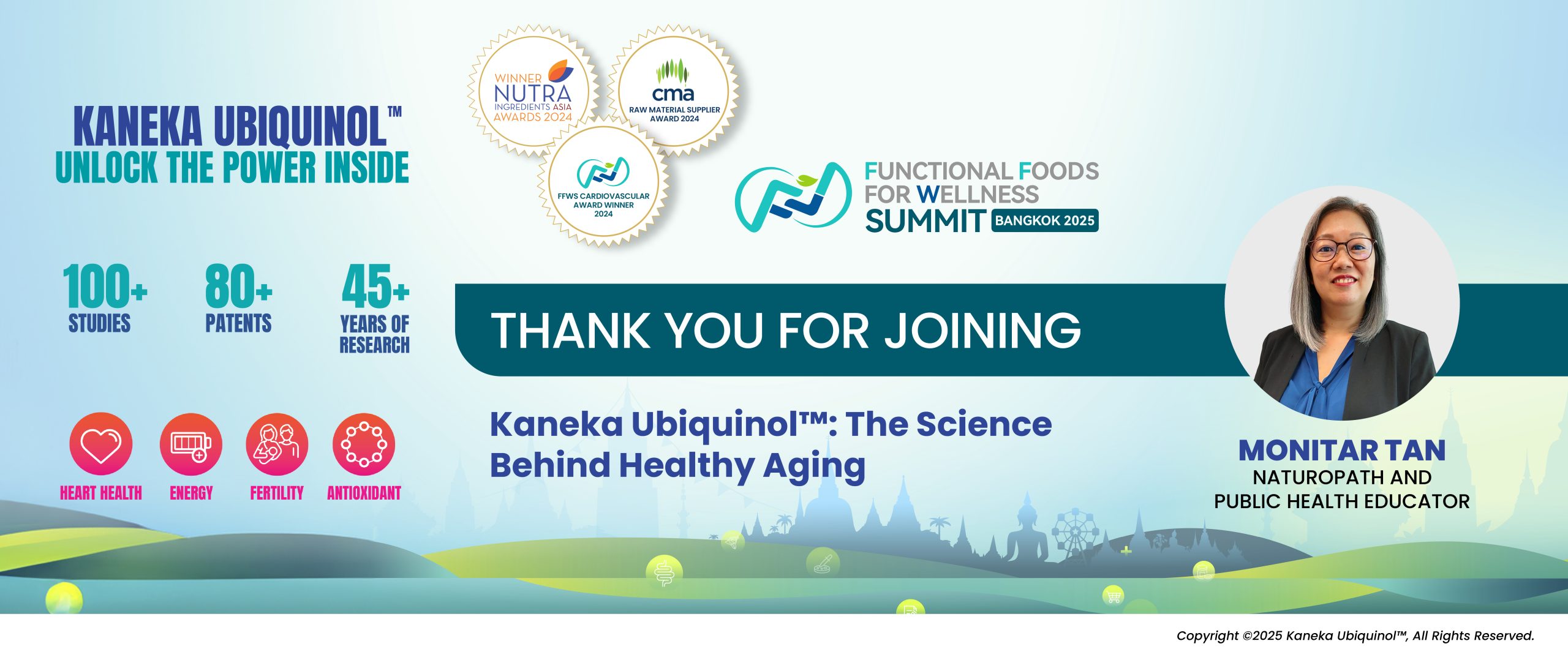
How Ubiquinol Enhances Sports Performance
Apr 2021Recent Article
Optimising sport and exercise performance is important to ensure you are getting the most out of your physical activities. For people who exercise regularly and those looking to become more active, Ubiquinol can help give your body those extra benefits that will support your sport performance.
In a study of over 100 German elite Olympic athletes, it was found that supplementing regularly with Ubiquinol significantly improved the athletes’ peak performance levels[1].
What is Ubiquinol?
Ubiquinol is the active form of coenzyme q10 (coq10), a fat-soluble antioxidant found naturally in every cell of the body[2]. Ubiquinol plays an important role in supporting cellular energy production, helping support all of our major organs with the energy they need to function at their best2.
How to boost your Energy Levels
Mitochondria are the powerhouse of the cell, converting the food we eat into the energy we exert[3]. In this conversion Adenosine Triphosphate (ATP) is produced and is known as a compound with high potential energy, working as an important supporter of chemical energy3. CoQ10 supports the synthesisation of ATP, which is more bioavailable in the active form Ubiquinol[4]. This means that Ubiquinol may be more easily absorbed by the body than Coq10, and may be more available to help support the body’s natural energy production levels4.
Ubiquinol and Heart Health
Ensuring healthy heart function is essential to maintaining and enhancing sport performance. Ubiquinol supports ATP production which powers cells and organs, including the heart, to have the essential energy needed to function3. This is especially impactful to power the increase in heart rate during sport.
Fight Oxidative Stress
Excessive physical exercise may lead to oxidative stress and negatively impact your long-term physical performance[5]. Oxidative stress is an imbalance of free radicals and antioxidants in the body, which may lead to cell and tissue disruption, and chronic inflammation issues[6]. Free radicals are molecules with an unpaired electron, which may make them unstable and reactive[7]. Antioxidants, like Ubiquinol, may help relieve the effects of oxidative stress by using their spare electrons to help stabilise the free radicals[8].
Seek advice from a healthcare practitioner to determine if supplementation is right for you. Always read the label.
[1] Alf, D., Schmidt, M.E. and Siebrecht, S.C., 2013. Ubiquinol supplementation enhances peak power production in trained athletes: a double-blind, placebo controlled study. Journal of the International Society of Sports Nutrition, 10(1), pp.1-8. < https://jissn.biomedcentral.com/articles/10.1186/1550-2783-10-24>
[2] Saini, R. (2011). Coenzyme Q10: The essential nutrient. J Pharm Bioallied Sci, 3(3), 466-467. < http://www.peirsoncenter.com/uploads/6/0/5/5/6055321/coenzyme_q10__the_essential_nutrient.pdf >
[3] Mendelsohn, B. A., Bennett, N. K., Darch, M. A., Yu, K., Nguyen, M. K., Pucciarelli, D., … & Nakamura, K. (2018). A high-throughput screen of real-time ATP levels in individual cells reveals mechanisms of energy failure. PLoS biology, 16(8), e2004624. < https://journals.plos.org/plosbiology/article?id=10.1371/journal.pbio.2004624 >
[4] Zhang, Y., Liu, J., Chen, X.Q. and Chen, C.Y.O., 2018. Ubiquinol is superior to ubiquinone to enhance Coenzyme Q10 status in older men. Food & function, 9(11), pp.5653-5659.
[5] Cooke, M., Iosia, M., Buford, T., Shelmadine, B., Hudson, G., Kerksick, C., … & Kreider, R. (2008). Effects of acute and 14-day coenzyme Q10 supplementation on exercise performance in both trained and untrained individuals. Journal of the International Society of Sports Nutrition, 5(1), 1-14. < https://link.springer.com/article/10.1186/1550-2783-5-8 >
[6] Kuhn, M. A. (2003). Oxygen Free Radicals and Antioxidants: An overview of how antioxidants protect the body from disease. AJN The American Journal of Nursing, 103(4), 58-62. < https://journals.lww.com/ajnonline/ >
[7] Lobo, V., Patil, A., Phatak, A., & Chandra, N. (2010). Free radicals, antioxidants and functional foods: Impact on human health. Pharmacognosy Reviews, 4(8), 118. doi: 10.4103/0973-7847.70902
[8] Antioxidants. (2021). Retrieved 16 February 2021, from https://www.hsph.harvard.edu/nutritionsource/antioxidants/
You can share this by:
Keep up-to-date with Ubiquinol News
Ubiquinol Headlines
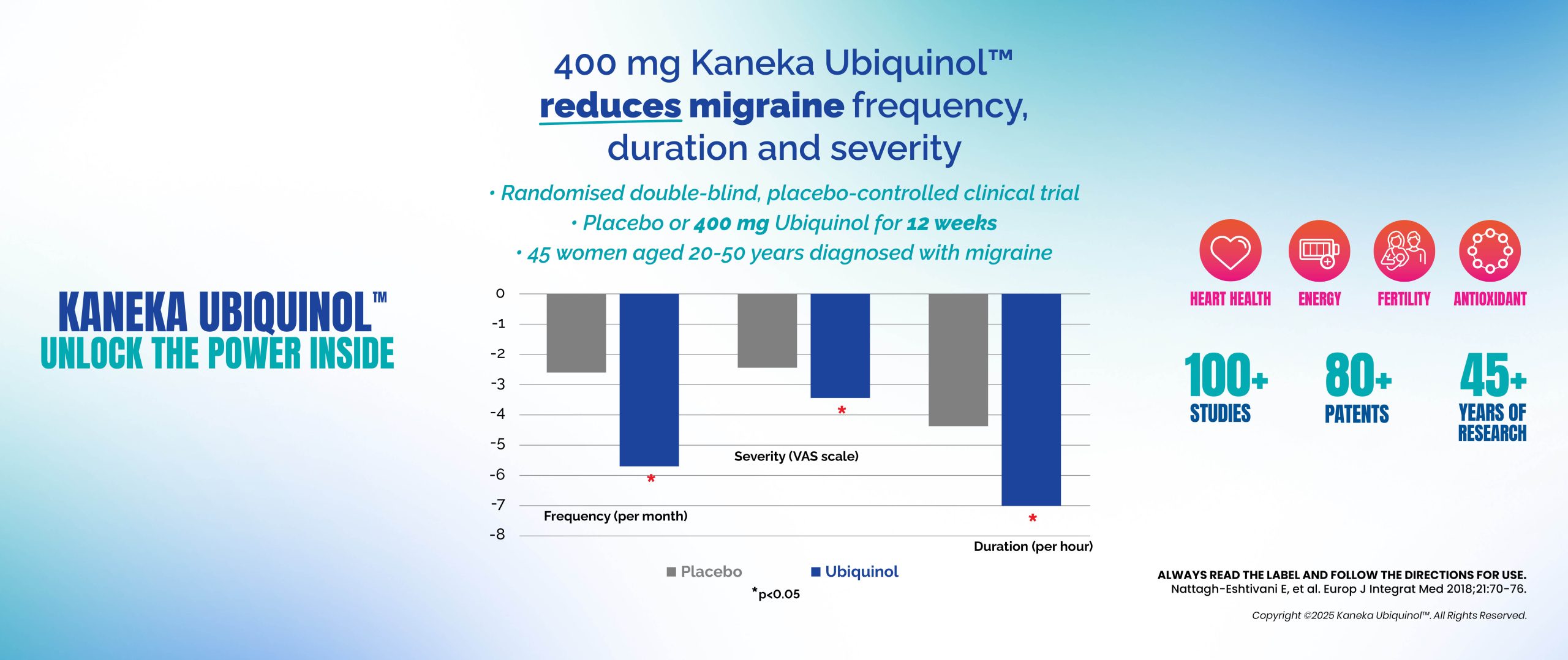
Ubiquinol: Supporting Migraine Relief Through Cellular Energy
Jan 2025Category: Antioxidants, complementary medicine, Energy, Fatigue, Health, Health Industry, healthy ageing, Kaneka, Mitochondrial health, Nutrition, Stress, Ubiquinol, Vitamins, wellnessRead More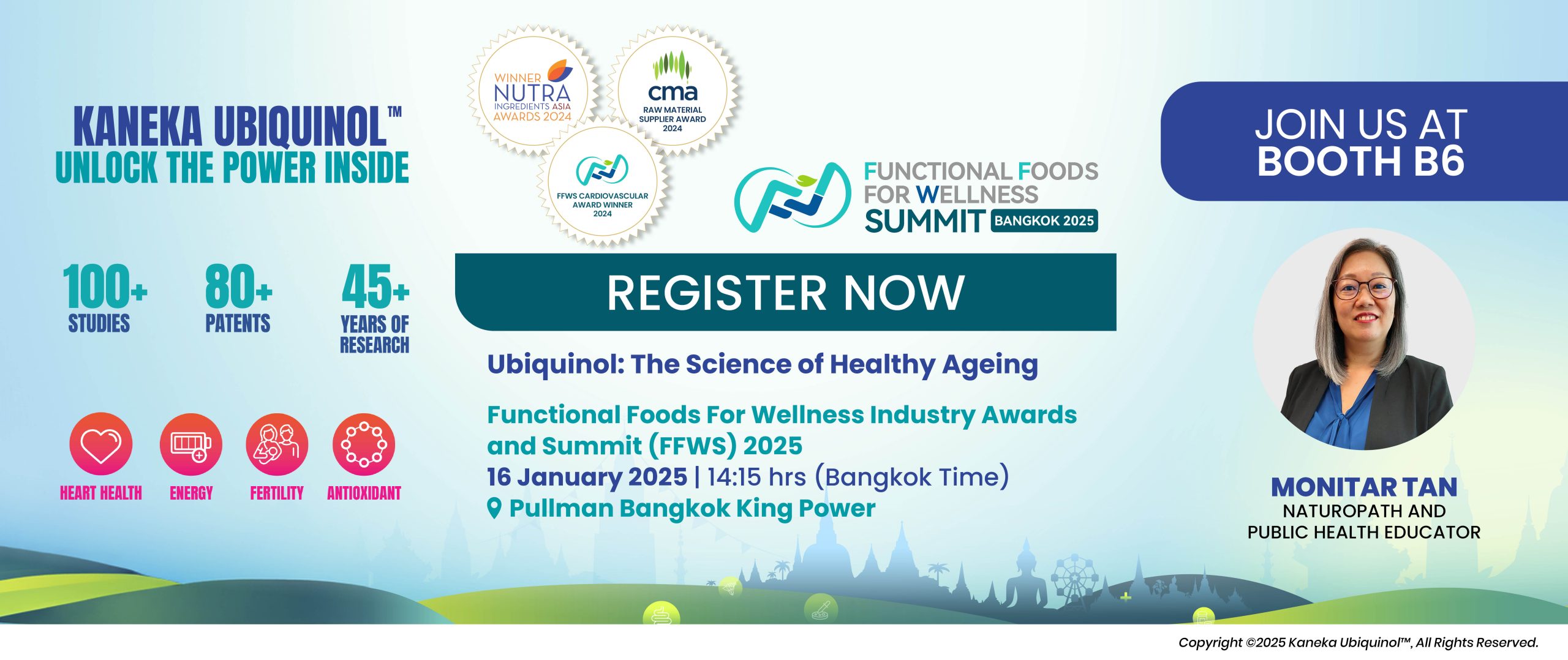
Kaneka Ubiquinol™ at Functional Foods for Wellness Industry Awards and Summit, #FFWS2025
Jan 2025Category: Ageing, Antioxidants, Awards, cardiovascular health, Conference, Conferences, Energy, Fatigue, FFWS2025, Health, Health Industry, healthy ageing, Kaneka, Menopause, Mitochondrial health, Nutrition, Ubiquinol, VitaminsRead More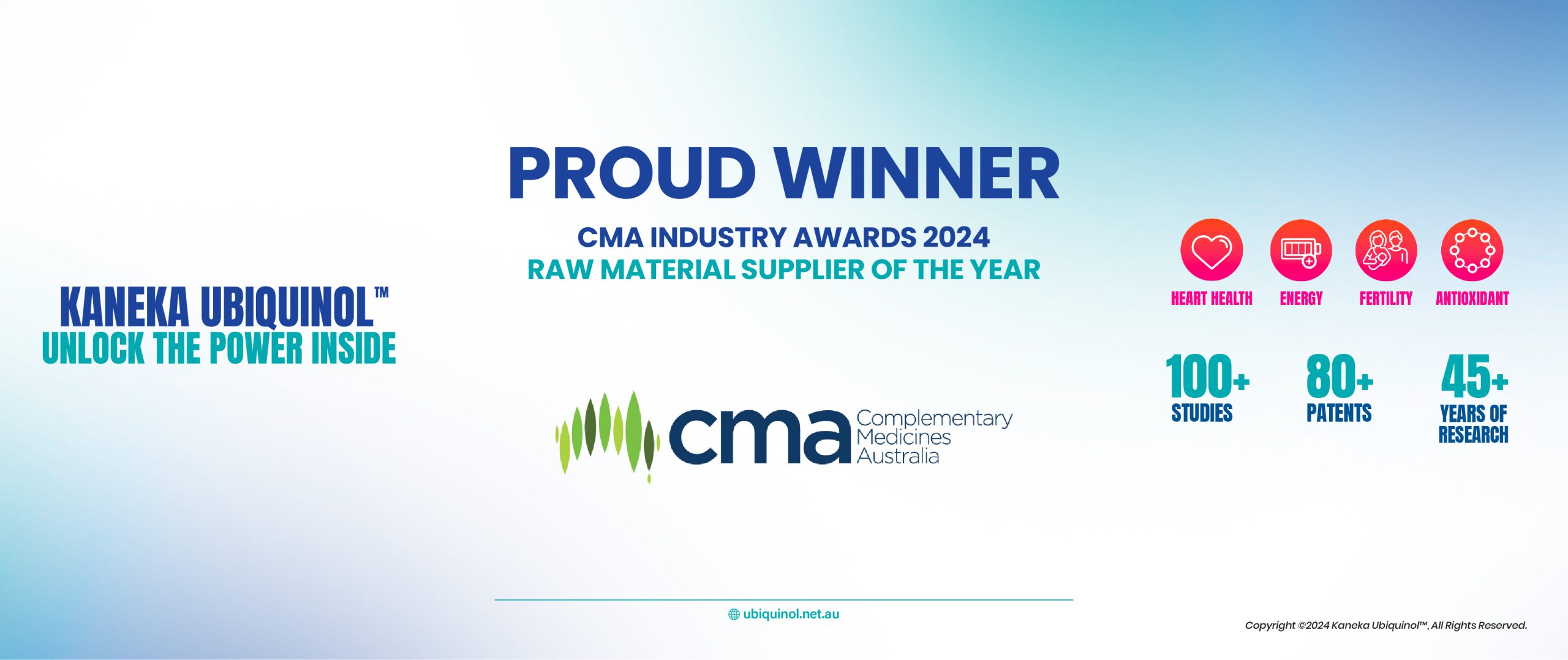
Kaneka Ubiquinol Wins Prestigious Complementary Medicines Raw Material Supplier of the Year Award 2024
Dec 2024Category: Ageing, Awards, cardiovascular health, complementary medicine, Conference, Conferences, Endurance, Energy, Fatigue, Fertility, Fitness, Health, Health Industry, healthy ageing, Heart, Immunity, In The News, Kaneka, Lungs, Memory, Mitochondrial health, Nutrition, Online, Stress, Ubiquinol, Vitamins, wellnessRead More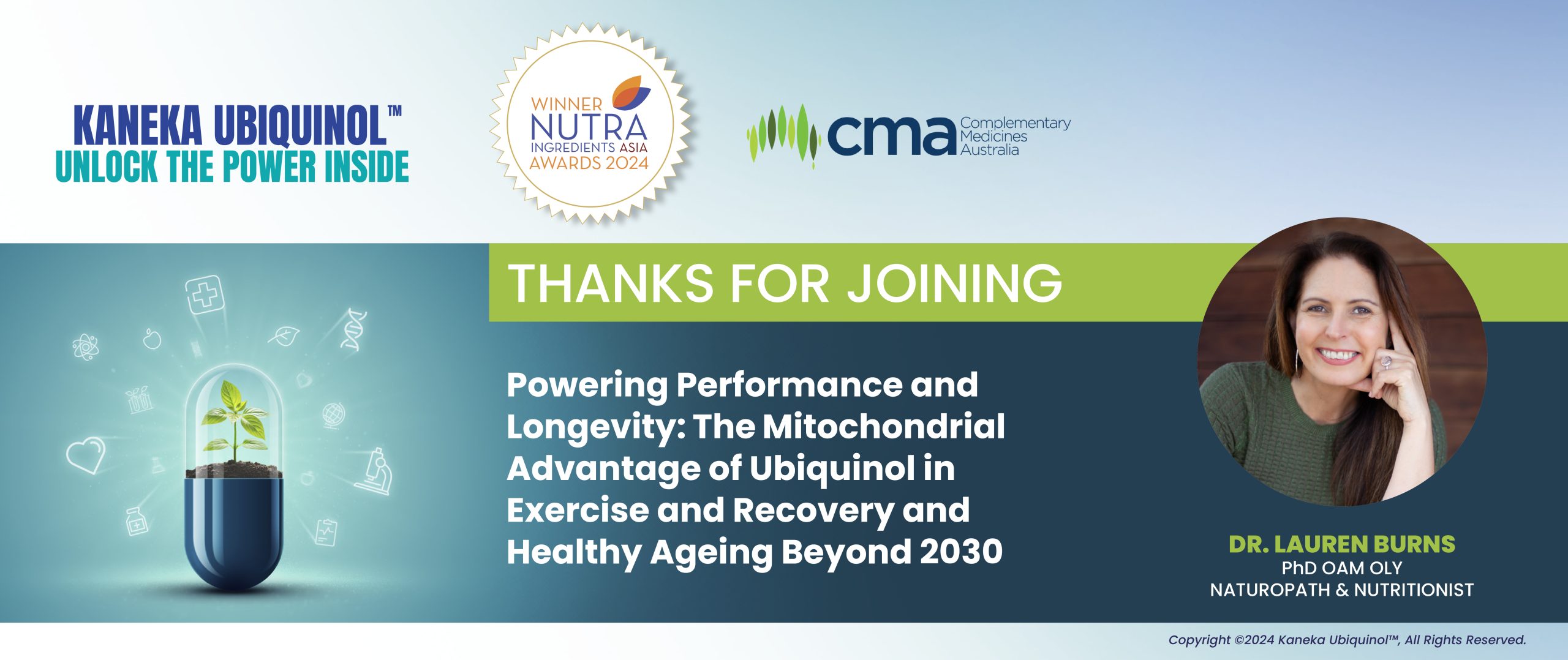
“Powering Performance and Longevity: Kaneka Ubiquinol™ at the CMA Annual Conference 2024”
Nov 2024Category: Ageing, Antioxidants, Awards, cardiovascular health, chronic fatigue syndrome, complementary medicine, Conference, Conferences, Endurance, Energy, Fatigue, Fertility, Fitness, Health, Health Industry, healthy ageing, Heart, In The News, Kaneka, Mitochondrial health, Online, Ubiquinol, VitaminsRead More
Natural Health Product Innovation Expo 2024
Nov 2024Category: Ageing, Antioxidants, cardiovascular health, Cholesterol, chronic fatigue syndrome, Conference, Conferences, Endurance, Energy, Fatigue, Fertility, Fitness, Health, Health Industry, healthy ageing, Heart, Kaneka, Menopause, Mitochondrial health, NHNZ, Nutrition, Stress, Ubiquinol, Vitamins, wellnessRead More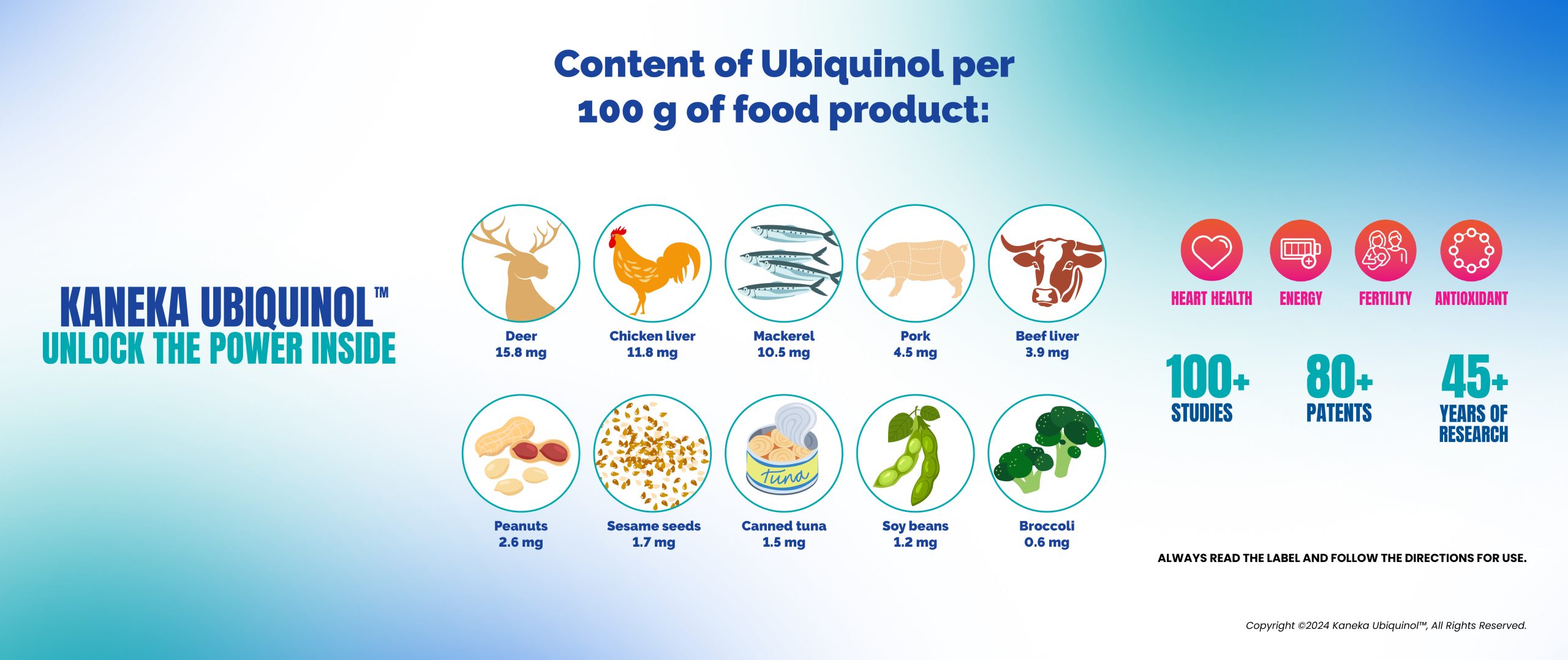
Ubiquinol: The Overlooked Nutrient for Vegans and Vegetarians
Oct 2024Category: Ageing, Antioxidants, Cholesterol, complementary medicine, Endurance, Energy, Fatigue, Fitness, Health, Health Industry, healthy ageing, Heart, Mitochondrial health, Nutrition, Stress, Ubiquinol, vitafoods, Vitamins, wellnessRead More
Investigating the Application of Ubiquinol in Mitochondrial Function
Oct 2024Category: Ageing, Antioxidants, cardiovascular health, Cholesterol, chronic fatigue syndrome, Endurance, Energy, Fatigue, Fertility, Fitness, Flu, Health, Health Industry, healthy ageing, Heart, Immunity, In The News, Kaneka, long covid, Lungs, Memory, Menopause, Mitochondrial health, myalgic encephalomyelitis, Nutrition, post pandemic, Stress, Ubiquinol, Vitamins, wellnessRead More
